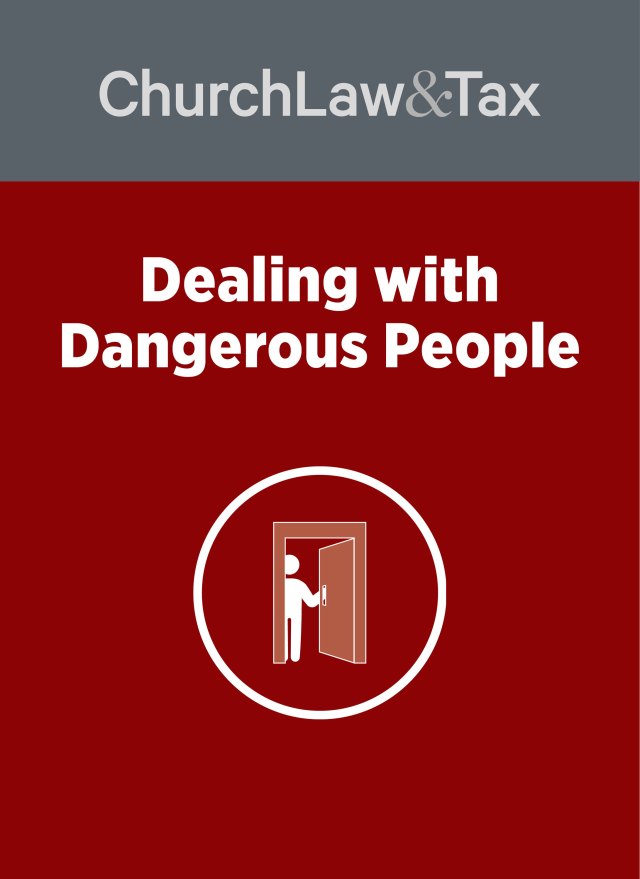Key point. Convicted sex offenders often are subject to probation agreements that restrict their attendance at church services. It is important for church leaders to be aware of such restrictions before allowing such persons to attend church or participate in church activities.
* The North Dakota Supreme Court ruled that a convicted child molester violated the terms of his probation by attending a church service and sitting with a minor child. An adult male (the “defendant”) was charged with sexually molesting a four-year-old child. He was sentenced to seven years in a state penitentiary, but the sentence was reduced to seven years of supervised probation in exchange for his confession. The conditions of probation included the following: “You shall not initiate, establish or maintain contact directly or indirectly, with any child under the age of 18, or attempt to do so, except under circumstances approved in advance and in writing by your probation officer. You may not go to or loiter near schoolyards, parks, playgrounds, arcades, or other places primarily used or visited by minors. You may not obtain employment with any agency or place of business that provides services for the care or custody of minors. You may not date or socialize with anybody who has children under the age of 18 years besides your wife, unless pre-authorized by your parole/probation officer.”
The defendant’s probation officer composed a “safety plan” that allowed him to attend church under the following conditions:
Arrival/Pre-Church
- I will either ride with my parents or drive myself to church.
- During this time I will always be in the presence of at least one adult and will never be in a room alone with a minor.
- If I do have to leave the room, I let an adult know where I am going (i.e. bathroom).
- I will sit with my parents.
- If I have to leave the sanctuary, I let my parents know where I am going (i.e. bathroom).
- I will not go into the nursery or classrooms.
- If I do have contact with a minor, I will politely excuse myself and either leave the building or find a group of adults.
During Church
After Church
see the “Arrival/Pre-Church”
Other
Three years later a court revoked the defendant’s probation when it was disclosed that he had engaged in contact at church with his previous victim. This contact consisted of the defendant sitting with the victim during a church service. The court re-imposed the seven-year prison sentence. The defendant’s probation officer testified that he had allowed the defendant to attend church, but warned him, “No contact with kids, so you don’t sit by one. If one initiates contact with you, you get up and excuse yourself politely. You leave. I made clear that he’s not to have any contact with kids, so that if he did go to church, he would make sure that he didn’t have contact with other people’s kids.”
On appeal, the defendant argued that the revocation of his probation was an unwarranted and excessive response to the harmless act of sitting with a child during a church service. The state supreme court disagreed, and affirmed the seven-year prison sentence.
Application. This case is instructive for two reasons. First, it demonstrates that child molesters who are not currently in prison may be subject to a supervised probation arrangement that restricts their church attendance. Many church leaders have learned that registered sex offenders are attending their church. Knowing how to respond in such cases can be a difficult question. Many churches do not allow such persons to attend church until they have ascertained whether they are subject to probation, and if so, the conditions imposed by the probation arrangement. In many cases, probation arrangements prohibit a defendant from attending church under any circumstances, while in other cases a defendant is allowed to attend church but under strict conditions such as those described in this case. A church’s exposure to liability is increased if it allows a known sex offender to attend services or other church activities without ascertaining the existence and contents of a probation arrangement.
Second, the conditions identified by the defendant’s probation officer in this case are significant, since they represent a determination by a government agency of the conditions under which a known child molester may attend church. Allowing known sex offenders to attend church will expose a church to a high level of risk. This risk must be properly managed. Some church leaders seek to manage the risk by totally excluding such persons from church property. Others prefer to allow them to attend church, but under specified conditions. The substance of these conditions will vary depending on the circumstances of each case. In drafting the conditions, church leaders may benefit from reviewing probation agreements used by government agencies. The restrictions on church attendance composed by the probation officer in this case are a useful example. Church leaders also should consider speaking with probation officers in their community regarding the kinds of conditions that would be appropriate in allowing a sex offender to attend church. Often, these persons will provide helpful information. Basing your decisions on this kind of information will help to demonstrate the exercise of reasonable care, and reduce the risk of negligence. In some cases, the nature of the prior offenses may make such “conditional attendance” arrangements inappropriate. Once again, your local probation officers can assist you in knowing how to decide whether to completely exclude a person or to allow him or her to attend church under specified conditions. Any decision to allow a known sex offender to attend church, even with conditions, should not be made without the assistance of legal counsel. State v. Wardner, 725 N.W.2d 215 (N.D. 2006).
* See also “Sexual harassment,” Krasner v. Diocese, 431 F.Supp.2d 320 (E.D.N.Y. 2006), in the recent developments section of this newsletter.



